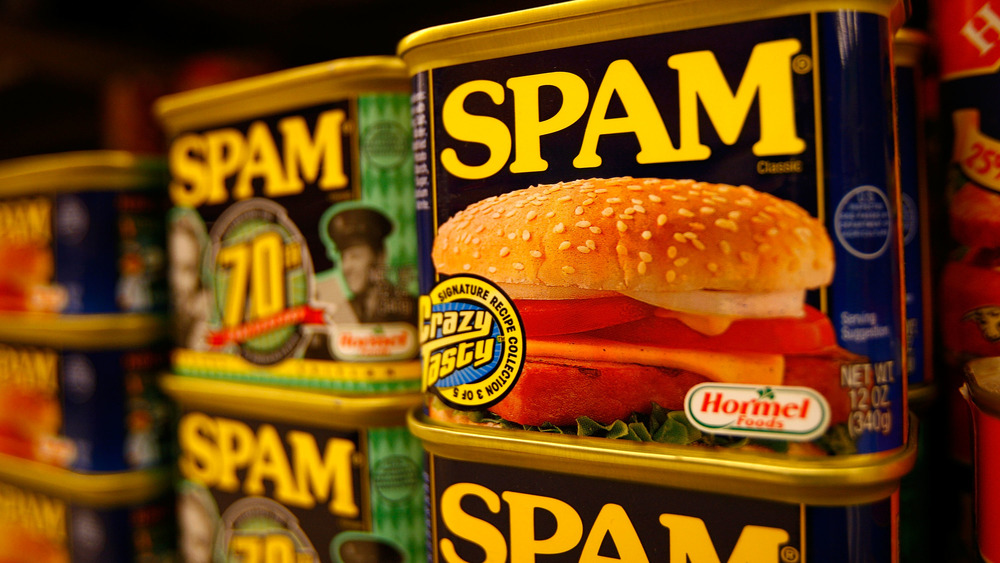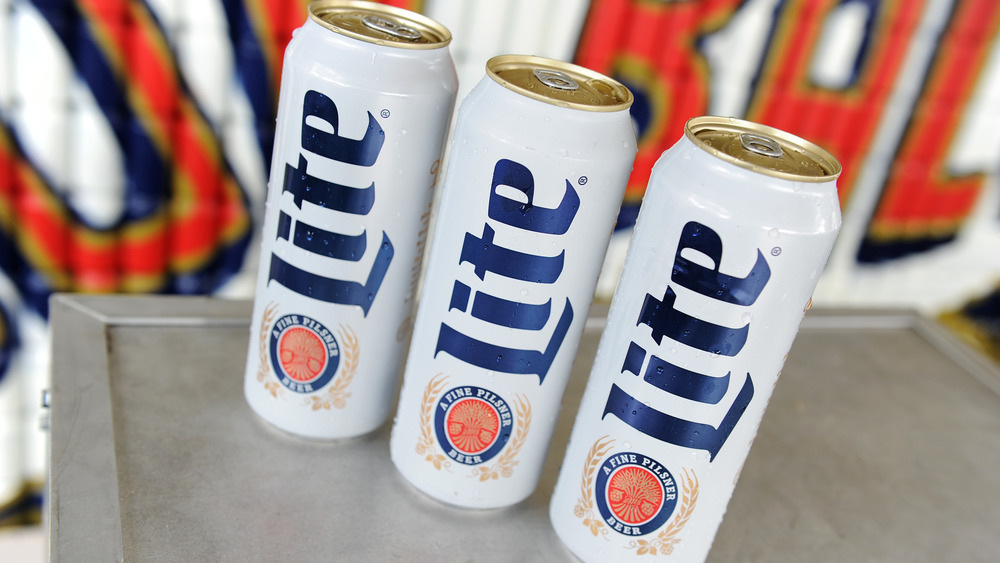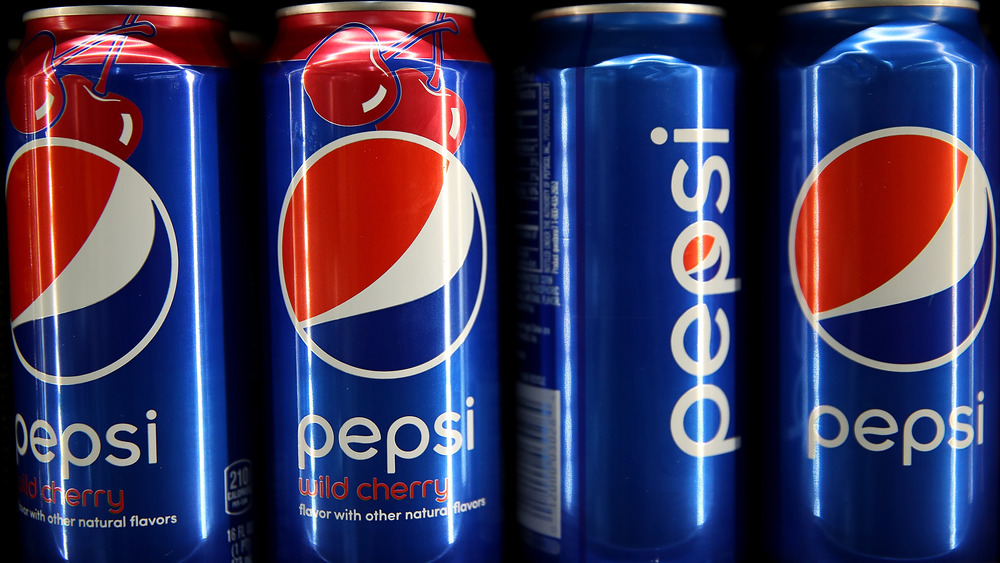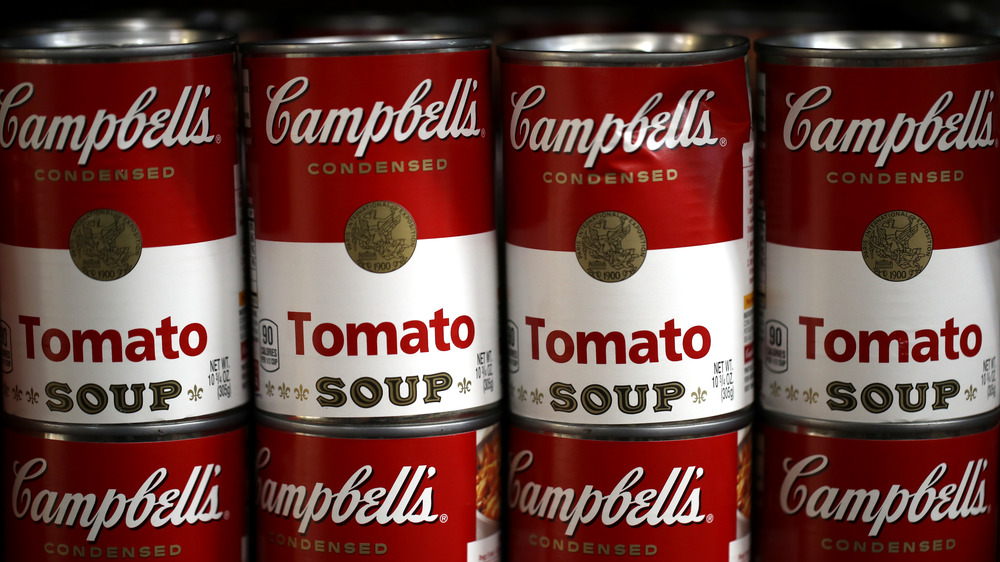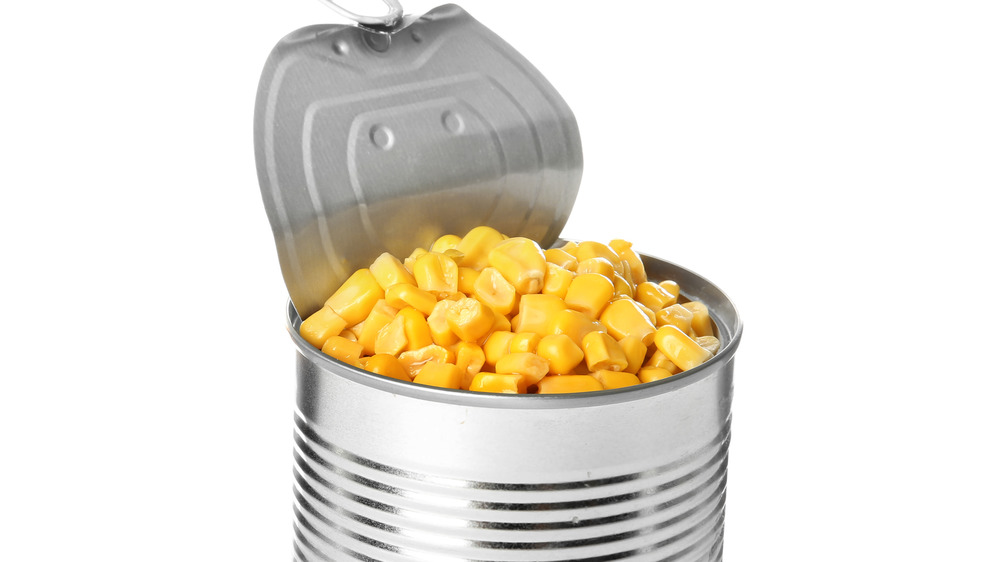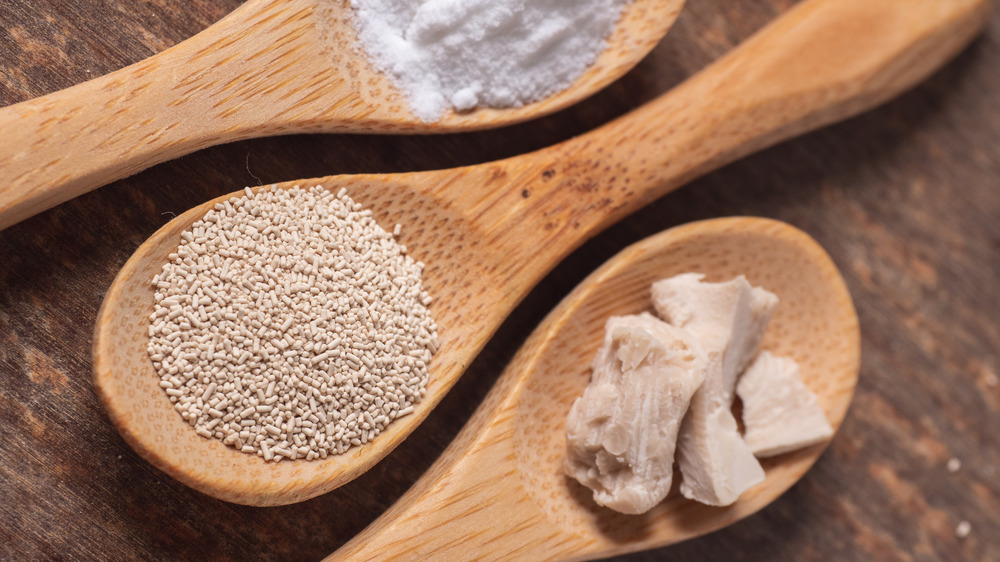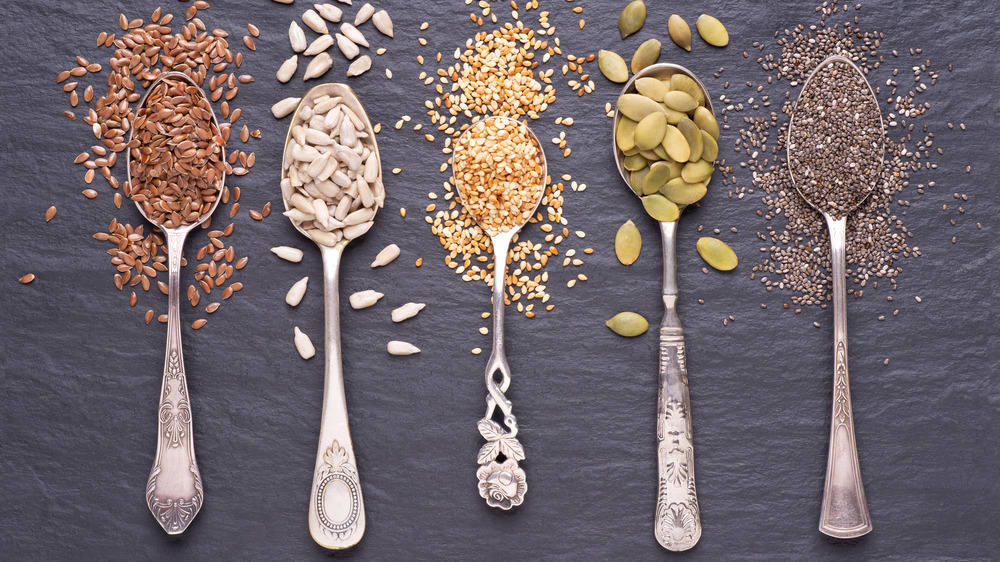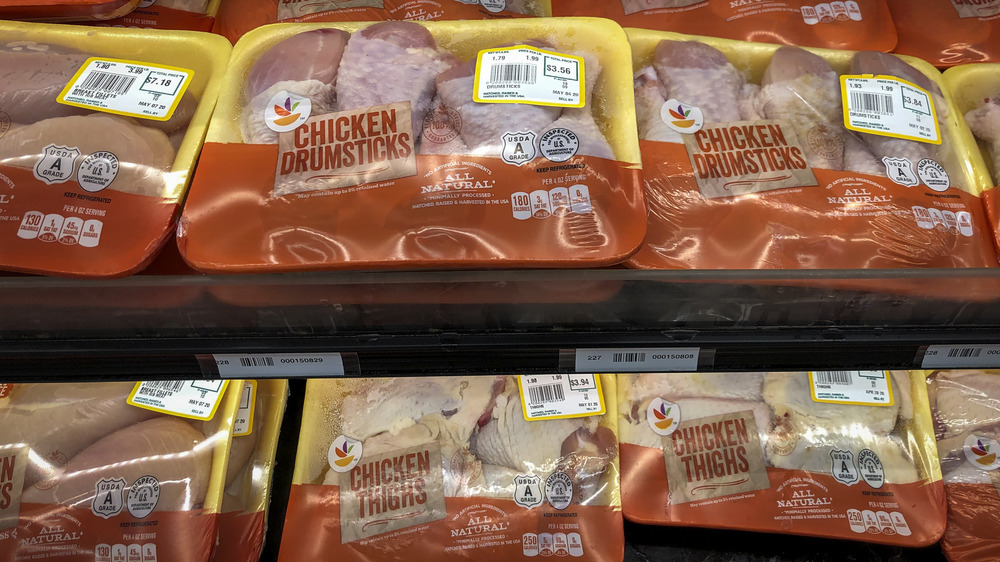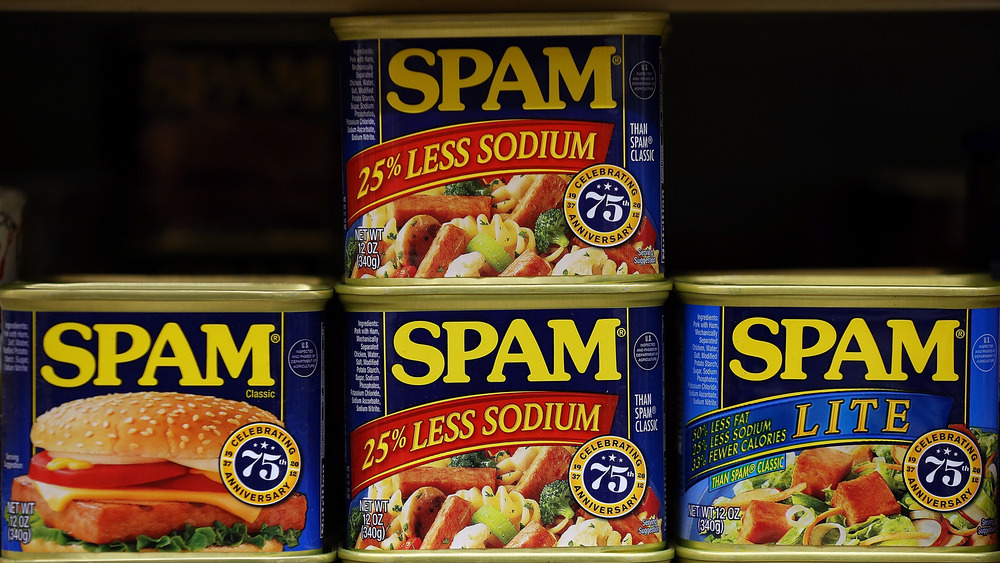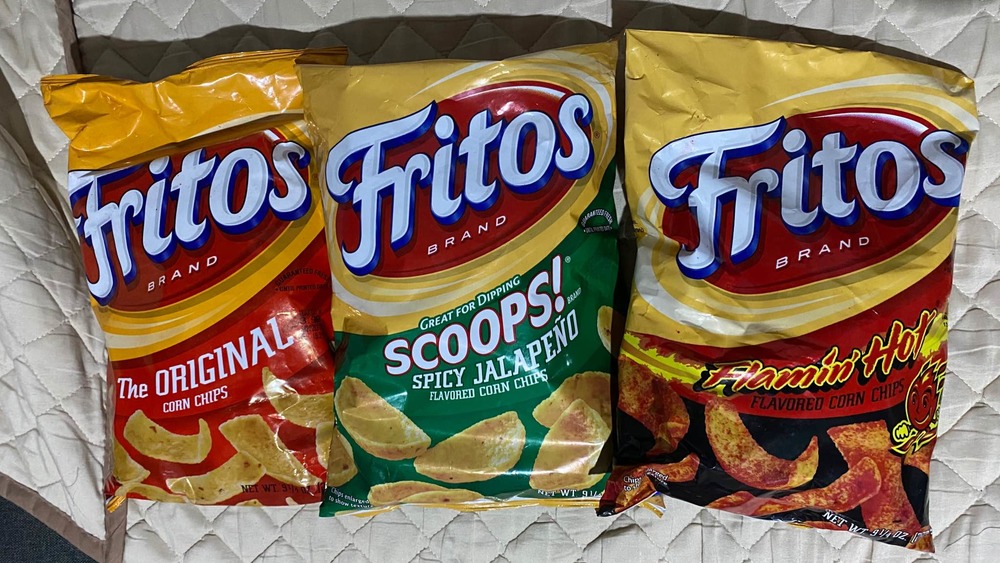Food Shortages We Could See In 2021
We've never had a year quite like 2020, and that was certainly felt at the grocery stores. Between lifestyle changes, widespread fear and uncertainty, and the need for new hobbies, our food shopping habits were flipped on their heads. Add in the fact that this all happened without any warning, and thus without any time to prepare. The result was apocalyptic looking grocery store aisles that were often completely bare of certain items.
While most food manufacturers were able to bounce back and return inventory levels to normal, for others, it took much longer, and still, more have yet to recover. And because the coronavirus pandemic is still plaguing much of the world, food production is often limited, even in the best cases. All this is occurring as we reach the holidays, when demand for many food items skyrockets.
All these factors add up to the reality that there could be several food shortages in 2021. Here are the items to keep an eye on.
Beer
If you believe there's going to be a beer shortage because sales have skyrocketed during the pandemic, you're only half right. Alcohol sales in the United States have indeed gone up significantly in 2020. But breweries, in large part, have remained open and beer continues to be made. So what's the problem? Believe it or not, it's the aluminum can.
Since bars and restaurants were or continue to be closed for a significant part of the year, most of the beer that would have been placed in kegs and delivered to the business is instead being put in cans and sold retail. This has created a demand for aluminum cans that overmatches the supply. Because of this, larger beer manufacturers, such as Molson Coors and Brooklyn Brewery, have been forced to cut back on their offerings and stick to selling their most popular beers.
But those that are really hurting are small, craft breweries. With no one visiting their tasting rooms, they began selling more beer in cans for people to drink at home. But finding those cans has been a problem. "The Bud Houses, Miller Coors, have just bought them all. We can't compete with them, obviously," one brewery employee told Newsweek. Another brewery owner expressed equal dismay. "We've experienced multiple instances of delays, shortages, changes in agreed-upon terms. It's a nightmare."
Soda
Soda faces the same aluminum can problem that beer does. But there is another component to all these beverage makers' troubles: a lack of carbon dioxide.
Carbon dioxide is used to give soda its bubbly, fizzy characteristics. But the substance is a by-product of the production of ethanol, which is used to make engine fuel. Therefore, ethanol producers are the ones who sell carbon dioxide. When people across the country abruptly stopped driving, fuel demands plummeted. In turn, ethanol plants cut production.
According to the Daily Mail, 34 out of the 45 United States ethanol plants that sell carbon dioxide had either cut production or idled completely during the coronavirus lockdown earlier this year. But as of this fall, carbon dioxide supply was still tight. One expert said he believes, "shortages will continue for the rest of the year, driven by ethanol issues. Until COVID-19 is under control, it is hard to see things returning to normal, considering our current [carbon dioxide] supply portfolio domestically."
With such a tight supply, soda manufacturers will likely have to stick to their tried and true products. So you'll probably be able to buy a Pepsi, but you'll have a hard time finding Pepsi Zero Sugar Wild Cherry.
Canned soup
Shelf-stable items were the grocery store item of choice when people began hoarding food earlier this year to get them through their isolation hibernation. Naturally, canned soup was a popular piece of merchandise and soup makers are still trying to ramp production up.
According to MarketScreener, General Mills, the maker of Progresso Soup, still hasn't caught up as of September even after increasing its production capacity and hiring new outsourcing partners. Likewise, Campbell's Soup Company's inventory is only about halfway recovered.
Although the companies are racing to get their products back on the shelf, they're coming up against another problem: the weather. As we head into colder months, more and more people will be shopping for soup, creating an even more limited inventory. Campbell Soup Company's CEO Mark Clouse said his team is working hard to fully catch up to the demand for soup by January, so it's clear this problem will last into 2021. The real question is, how long into 2021. Until then, you'll find some soup on the shelf but it may not be the flavor you're looking for.
Canned corn
When consumers began stockpiling their pantries at the onset of the coronavirus, they naturally tend to favor nonperishable foods. After all, nobody knew what the months ahead would be like. No grocery store item was prepared for the onslaught of sales, but canned corn was hit particularly hard. The trouble with canned corn is the variety of corn used: sweet corn. Sweet corn is harvested just once each year, in the summer. Fast forward to the spring of 2020, which saw canned corn sales go up 47.6 percent.
At this point, big food manufacturers urged farmers to grow more corn, but by this time, corn growers had already set out their harvesting plan. There's also the issue of getting the canned goods to the store. Many trucking companies have cut back on their fleets, meaning there are fewer trucks to transport food.
This is all to say that there won't be an increase in production coming anytime soon. So if the pandemic lags on, and consumers continue to stockpile nonperishable food, canned corn may be a difficult item to find on your grocery shelves.
Yeast
We all needed to pick up new indoor hobbies once quarantine happened, and across the country seemingly everyone and their grandma got the memo that the hobby would be baking banana bread (and maybe some other treats as well).
This resulted in a bonanza of baking ingredients sales, and one such ingredient saw a 258.5 percent sales increase earlier this year: baking yeast. While other ingredients were able to bounce back fairly quickly, for a variety of reasons, yeast took longer. This is mainly due to the fact that yeast is actually a living creature and needs time for its cells to continue to double.
But the yeast shortage took place months ago so we should be in the clear, right? Not exactly. Peak demand for yeast typically comes at the end of the year during the holiday season. If people weren't baking banana bread in the spring, they'll certainly be baking Christmas cookies in the winter. If we see a run on baking products anywhere close to what we saw earlier in the year, yeast could be flying off the shelves in December, meaning the next shortage could last well into 2021.
Flour
You can't bake anything without it, so just like yeast, flour suffered shortages throughout the country in 2020. The situation was the result of an "unprecedented demand," said Christopher Clark, vice president of communications and administration for the North American Millers' Association. Some at-home bakers were even forced to make their own flour (which you can do by blending any grain, seed, nut, or bean).
But with the country being hit with a surge of coronavirus cases, consumers are returning to their shopping behaviors when the pandemic was in its nascent stage, meaning they're stocking up — even more so on items they fear will be gone soon. So even if flour is back on the shelves now, it likely won't be for long. "To compound the shortages, the customers that weren't buying before are now buying extra, so the shortages are starting to impact stock levels," Chris Mentzer, the director of operations for Rastelli Market Fresh in New Jersey, told Today. "Yeast and flour continue to be in high demand since they were virtually impossible to get in March and April."
Just like yeast, the expected flour demand at the end of the year could continue as the calendar flips to 2021.
Seeds
Another popular hobby people picked up in 2020 was gardening. Those who had never planted so much as a single flower found themselves in the soil, planting seeds in hopes of a fruit and vegetable bounty. It's an activity to help pass the time as well as one that produces food during a time of great food insecurity. But the hobby got so popular that it resulted in a seed shortage, one that is expected to continue in 2021.
If you rely on your garden to put food on your plate, there are several seed-saving tips you should follow going into the new year. The first is to save the seeds from this year's bounty. Once you have the seeds from the produce, you can store them in a cool, dark place, or in the freezer where they can last for years.
You can also swap seeds with other growers. Depending on where you live, there may be an event nearby, or you could just hop online.
Beef and poultry
The meat industry suffered a major setback in the spring and summer when some of the largest meat processing plants suffered coronavirus outbreaks. This forced them to temporarily shut down or scale back production significantly. In April, John Tyson, chairman of Tyson Foods, the country's largest meat processor, took out a newspaper ad that read, "there will be limited supply of our products available in grocery stores until we are able to reopen our facilities that are currently closed."
But even as these plants reopened, they were forced to do so in a limited capacity. Normally, plant employees work in close quarters, even shoulder to shoulder. But new protocols like glass dividers and social distancing limits the number of people that can work at one time. Therefore, facilities can't process meat as quickly as they could before.
Additionally, just like the rest of the world, the meat industry is not immune to new COVID-19 outbreaks and could suffer setbacks before all is said and done. With the United States experiencing a surge in coronavirus cases as it heads into the year's final months, the meat industry is again suffering. In November, a meat plant in New Mexico was ordered to shut down for two weeks.
Spam
While most in the food world have suffered significant losses in 2020, Spam rode a resurgent high over the summer. As more and more people continued to cook at home, sales of the canned meat soared. According to Bloomberg, sales of the product jumped more than 70 percent in just one 15-week period ending in June.
But there's a flip side to every coin. This surge in demand coincided with coronavirus outbreaks that afflicted many of the major meat processing plants in the United States, most of which had to close entirely or cut back on operations.
Months later, Hormel, the company that manufactures Spam, said it would have a difficult time meeting this high demand in the near future. Hormel cited supply chain, staffing, and production problems as the primary culprits. The company has been forced to reduce the number of employees working at one time, which in turn, reduces the amount of Spam that can be made. As long as COVID-19 is still a factor, production should continue to be limited.
Snack foods
Being stuck at home without our favorite snack food is a tough haul. But it appears that this what our future holds. Whether cookies or chips, sweet or salty, certain varieties of well-known brands won't be on the shelves in 2021. Like many food producers, snack companies have chosen to focus their efforts on their best-selling products. Mondelez International, maker of the Oreo, announced it would be producing more original Oreos in lieu of some of its more unique Oreo flavors. Pepperidge Farm did the same and limited production of its Geneva cookie.
Just like their cookie snack brethren, many potato chip flavors were put on hold this year or downright discontinued. Among the former are Lay's Lightly Salted Potato Chips, Tostitos Baked Scoops, and Fritos Scoops Spicy Jalapeno. Those that certainly won't be joining us in 2021 include Lay's Classic Multi-Pack and Tostitos Black Bean & Garlic.
All these snack food manufacturers cite as the reason for the cutbacks the need to maximize overall output due to high product demands caused by the pandemic. Therefore, expect to see these shortages in 2021, until the coronavirus is in the rear-view mirror.
